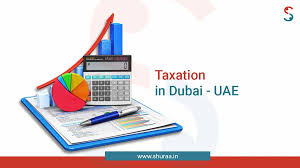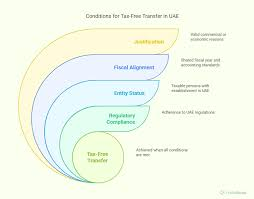Now Reading: Taxation for Freelancers and Sole Proprietors in the UAE: 2025 Compliance Requirements
-
01
Taxation for Freelancers and Sole Proprietors in the UAE: 2025 Compliance Requirements
Taxation for Freelancers and Sole Proprietors in the UAE: 2025 Compliance Requirements

Table of Contents
Introduction
Freelancers and sole proprietors in the UAE benefit from a tax-friendly environment, with no personal income tax or capital gains tax. However, the Corporate Tax Law (Federal Decree-Law No. 47 of 2022), effective since June 2023, and subsequent 2025 updates impose specific obligations on individuals conducting business activities. This guide details the tax requirements, registration processes, and compliance strategies for freelancers and sole proprietors in 2025.
Key Taxation and Compliance Requirements

1. Corporate Tax Applicability
- Definition: Freelancers and sole proprietors are considered “Natural Persons” under the Corporate Tax Law if they conduct a business or business activity in the UAE. This includes self-employed individuals, consultants, and professionals operating without a corporate entity.
- Tax Threshold:
- Taxable Income: Income from business activities exceeding AED 375,000 ($102,000) annually is subject to a 9% corporate tax rate. Income below this threshold is taxed at 0%.
- Revenue Threshold for Registration: Individuals earning over AED 1 million ($272,000) annually from business activities must register for corporate tax with the FTA.
- Exclusions: Personal income (e.g., salaries, personal investment income, or real estate income not derived from a licensed business activity) is not subject to corporate tax.
- Implication: A freelancer earning AED 1.2 million annually from consulting services must register for corporate tax and pay 9% on income above AED 375,000 (i.e., 9% of AED 825,000 = AED 74,250 or $20,230).
2. Corporate Tax Registration

- Mandatory Registration:
- Who: Freelancers and sole proprietors with annual revenue exceeding AED 1 million.
- Deadline: By March 31, 2025, for those meeting the threshold in the 2024 tax year (or within 3 months of meeting the threshold for new businesses).
- Process: Register via the FTA’s EmaraTax portal (https://www.tax.gov.ae). Required documents include Emirates ID, trade license, and financial statements.
- Penalty for Non-Compliance: AED 10,000 ($2,720) for failing to register by the deadline.
- Voluntary Registration: Individuals earning below AED 1 million may register voluntarily to claim input VAT credits or simplify compliance.
- Implication: Timely registration is critical to avoid penalties. Freelancers should maintain accurate revenue records to assess registration obligations.
3. Value-Added Tax (VAT)

- Rate: 5%, managed by the FTA since January 2018.
- Applicability:
- Mandatory VAT Registration: Required for freelancers/sole proprietors with annual taxable supplies (e.g., services or goods) exceeding AED 375,000 ($102,000).
- Voluntary Registration: Available for those with taxable supplies above AED 187,500 ($51,000) to recover input VAT.
- Exemptions: Services like certain financial, healthcare, and educational activities may be exempt or zero-rated, but most freelance services (e.g., consulting, design, IT) are subject to 5% VAT.
- Non-Residents: Non-resident freelancers earning UAE-sourced income must register for VAT, regardless of the threshold, unless the client handles VAT under the reverse charge mechanism.
- Compliance: Registered individuals must issue VAT-compliant invoices, file quarterly VAT returns, and maintain records for five years.
- Implication: A freelancer earning AED 500,000 annually from taxable services must register for VAT, charge 5% on invoices (AED 25,000), and remit this to the FTA, while claiming input VAT on business expenses.
4. No Personal Income Tax
- Description: The UAE does not impose personal income tax on earnings from freelance or sole proprietorship activities.
- Implication: Freelancers retain more net income compared to jurisdictions with personal income tax (e.g., 20–40% in many Western countries). However, home country tax obligations may apply for non-residents.
5. Free Zone Considerations
- Tax Benefits: Freelancers operating in UAE Free Zones (e.g., Dubai Media City, Abu Dhabi Global Market) may qualify as Qualifying Free Zone Persons (QFZPs) and benefit from a 0% corporate tax rate on qualifying income (e.g., from overseas clients or Free Zone activities).
- Conditions: Must maintain adequate substance (e.g., physical presence, employees) and comply with FTA criteria. Non-qualifying income (e.g., from mainland UAE clients) is taxed at 9%.
- Implication: Free Zone freelancers can reduce tax liabilities by structuring operations to maximize qualifying income, but they must ensure compliance with FTA audits.
6. Record-Keeping and Compliance
- Requirements:
- Maintain accurate financial records (e.g., invoices, receipts, expense logs) for at least five years, per FTA regulations.
- Prepare financial statements in accordance with International Financial Reporting Standards (IFRS) if registered for corporate tax.
- Submit corporate tax returns within nine months of the fiscal year-end (e.g., September 30, 2025, for a December 31, 2024, year-end).
- Update Ultimate Beneficial Owner (UBO) information regularly, as freelancers/sole proprietors are typically the UBOs of their businesses.
- eInvoicing: A proposed eInvoicing system (consultation open until February 27, 2025) may require freelancers to adopt digital invoicing for real-time transaction reporting.
- Implication: Robust accounting systems (e.g., QuickBooks, Xero) are essential to track income, expenses, and tax liabilities, especially for VAT-registered freelancers.
7. Exemptions and Deductions
- Exemptions:
- Income from personal investments (e.g., dividends, capital gains) is not subject to corporate tax.
- Certain activities (e.g., healthcare, education) may qualify for VAT exemptions or zero-rating.
- Deductions: Business expenses (e.g., office rent, equipment, travel) are deductible from taxable income for corporate tax purposes, provided they are wholly and exclusively for business use.
- Implication: Proper documentation of expenses can reduce taxable income, lowering corporate tax liability.
Strategic Actions for Freelancers and Sole Proprietors
- Monitor Revenue: Track annual revenue to determine if corporate tax (AED 1 million threshold) or VAT (AED 375,000 threshold) registration is required.
- Register Timely: Complete corporate tax registration by March 31, 2025, if revenue exceeds AED 1 million to avoid AED 10,000 penalties.
- Leverage Free Zones: Operate from Free Zones to benefit from 0% corporate tax on qualifying income, ensuring compliance with QFZP criteria.
- Implement Accounting Systems: Use software to manage invoices, expenses, and tax filings, ensuring IFRS compliance and readiness for eInvoicing.
- Claim Deductions: Document all business expenses to reduce taxable income, consulting tax advisors to maximize allowable deductions.
- Comply with VAT: Issue VAT-compliant invoices and file quarterly returns if registered. Consider voluntary VAT registration to recover input VAT on expenses.
- Engage Tax Experts: Work with professionals (e.g., BMS Auditing, PwC) to navigate corporate tax, VAT, and Free Zone compliance.
- Check Home Country Taxes: Non-residents should consult tax advisors to address potential tax obligations in their home country for UAE-sourced income.
Comparative Advantage
The UAE’s tax regime is highly favorable for freelancers compared to other jurisdictions. For example, a freelancer earning $100,000 in the US may face 24–32% federal income tax ($24,000–$32,000), while in the UAE, only 9% corporate tax applies on income above AED 375,000 (e.g., $6,120 on $100,000), with no tax on lower earnings. The absence of personal income tax and low corporate tax rates enhance net earnings, but compliance with registration and reporting is critical.
Conclusion
Freelancers and sole proprietors in the UAE in 2025 must navigate corporate tax and VAT obligations while leveraging the country’s tax-friendly environment. By registering on time, maintaining accurate records, and utilizing Free Zone benefits, individuals can minimize tax liabilities and ensure compliance. For detailed guidance, visit the FTA website or consult tax professionals like CLA Emirates or PwC.
WATCH MORE: https://www.youtube.com/watch?v=_LYi4XCpYFk&vl=hi
READ MORE: Understanding Property Taxes in the UAE: A 2025 Guide for Investors






















